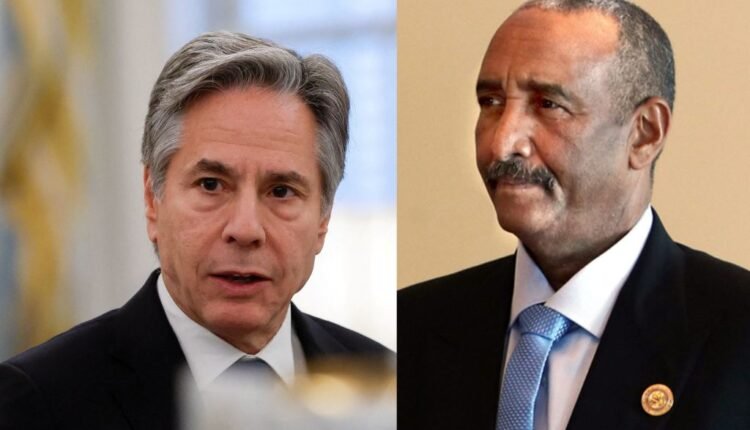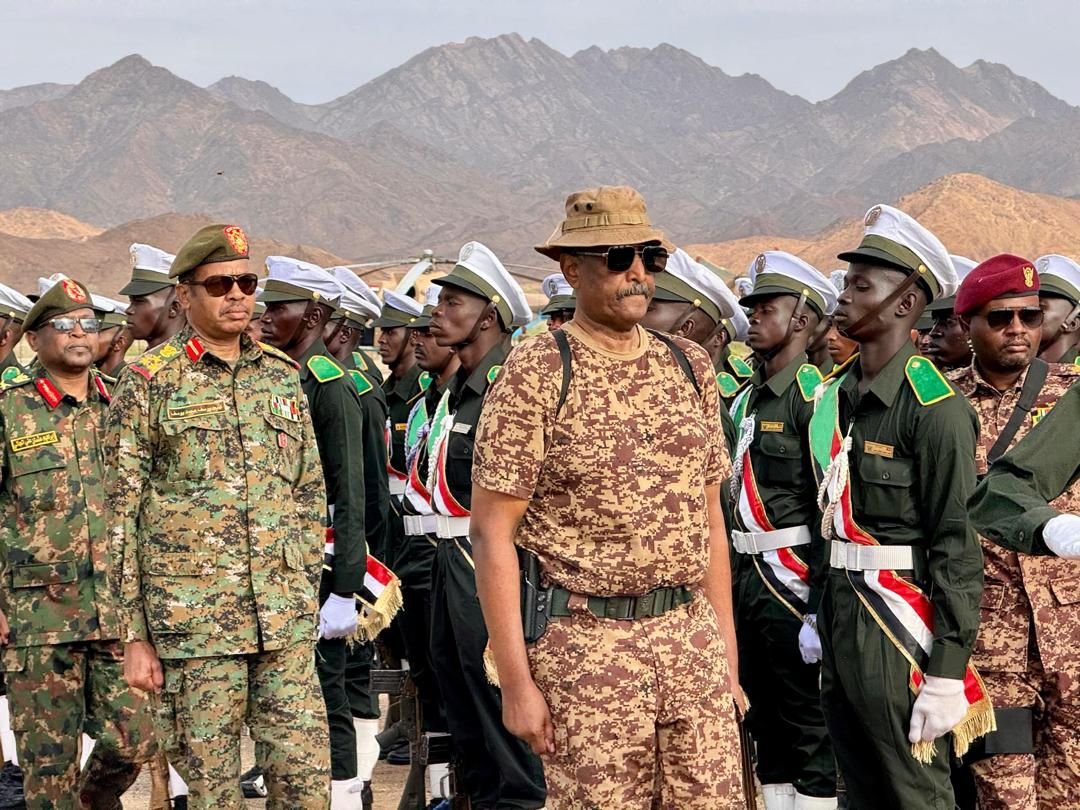What are Khartoum’s Worries ahead of Geneva talks?

Al-Qadarif – Sudanhorizon – Telal Ismail
The US Administration is exerting strenuous efforts seeking to convince Lt Gen Abdel Fattah Al-Burhan, Head of Sudan’s Sovereign Council, into dispatching a high-level delegation to Geneva, or otherwise lead the delegation himself, for the talks scheduled for August 14.
However, these efforts will have to first address concerns expressed by the Sudanese government, ahead of the initiations of the talks. What are those concerns?
What the US Administration wished to achieve in the Geneva meeting, have been revealed during the phone call made by US Secretary of State Anthony Blinken with Lt Gen. Al-Burhan. The agenda include a cease fire. The agenda underlined that the parties are to conduct national talks on cease fire, describing it as the sole means for putting an end to the conflict, preventing spread of famine, and restoring civilian political process, according to the statement by the State Department spokesman, Matthew Miller.
Back on July 23, the United States invited both the Sudanese army and the Rapid Support Forces militia for talks to be convened in August14th , cohosted by Switzerland and Saudi Arabia, for reaching a ceasefire agreement.
According to the American invitation, the African Union, Egypt, the United Arab Emirates, and the United Nations will participate in the talks as observers.

Government concerns
On Monday, Al-Burhan said in a tweet in his official account on the X platform that he spoke with Blinken about “the need to address the concerns “of the Sudanese government before engaging in any negotiations
Last week, the Sudan’s Ministry of Foreign Affairs said the government has responded to an American invitation to hold negotiations in Geneva with the aim of reaching a ceasefire in the country. But the ministry indicated in its statement that it would not be acceptable to hold any negotiations before implementing the “Jeddah Declaration,” that stipulates a full withdrawal of the Rapid Support Forces from civilians’ private homes and a total rebel elements’ eviction from public buildings.
The Sudanese response included “the need for prior consultation with the Sudanese government regarding the form and agenda of any negotiations, and the parties participating in or attending them while stressing that the Jeddah forum and the agreement reached therein should be the basis for the coming negotiations.”
In its response, the Sudanese government requested a meeting with the US government to “prepare well for the peace negotiations in a way that achieves the dividends that the Sudanese people are looking for.”
These preoccupation are consistent with what was expressed by Burhan – who survived an assassination attempt at the Jabait military base- at the end of July – when he underlined that : “We do not mind reaching peace, but it must be a peace that preserves the pride and dignity of the Sudanese people”. He underlined that his government welcomes all and every sincere effort aimed at achieving peace in the country.
He added: “We want the war to stop while we are victorious. The war cannot stop while the enemy is occupying civilians’ homes and private properties, besieging Babanousa and villages in Gazira and El-Fasher.”
Burhan stressed that as long as the rebels are present in these areas, the war will continue and could not be expected to cease.
He explained that any party calling for negotiations must fully recognize the government of Sudan and its sovereignty over Sudanese national territories.
Not far from this official position, as expressed by Burhan, was the statement of the Sovereign Council member, the Assistant Commander-in-Chief of the Sudanese Army, Yasser Al-Atta, who told Sudan TV that Sudan was heading towards engaging in a new strategic axis involving major countries in and outside the region, following attempts by some regional powers, he did not name, that worked to besiege and isolate Sudan.
Al-Atta announced that the coming period will witness decisive victories for the army on all combat fronts after his government has recently secured large military supplies, with expectations of receiving other qualitative armaments “that will be the beginning of the end of the Rapid Support Militia.”
Shortlink: https://sudanhorizon.com/?p=768

